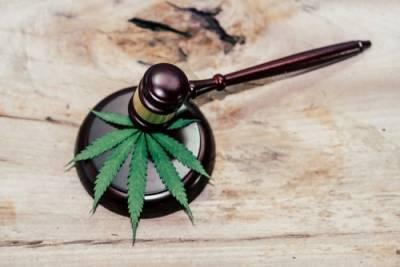Connecticut Becomes the 19th State to Legalize Recreational Marijuana
 Marijuana use has become more and more accepted over the past decade, and multiple states have chosen to legalize this substance. The state of Connecticut will soon be joining these ranks after Governor Ned Lamont signed a bill that will make marijuana legal for recreational use. Some of the bill’s provisions will go into effect as soon as July 1, 2021. In addition to affecting criminal cases involving drug charges, this new law may also play a role in cases involving juvenile crimes, probation violations, and clearing of criminal records.
Marijuana use has become more and more accepted over the past decade, and multiple states have chosen to legalize this substance. The state of Connecticut will soon be joining these ranks after Governor Ned Lamont signed a bill that will make marijuana legal for recreational use. Some of the bill’s provisions will go into effect as soon as July 1, 2021. In addition to affecting criminal cases involving drug charges, this new law may also play a role in cases involving juvenile crimes, probation violations, and clearing of criminal records.
Details of Connecticut’s New Marijuana Law
Starting on July 1, 2021, people over the age of 21 will be allowed to possess up to 1.5 ounces of cannabis plant materials on their person or an equivalent amount of products containing marijuana. A person may also possess up to five ounces of marijuana in a locked container in their residence or that is locked inside the trunk or glove compartment of a vehicle. The law has also eliminated the criminal penalties for manufacturing, selling, or using drug paraphernalia related to marijuana, and it reduced the penalties for illegally manufacturing or selling marijuana.
The law made a number of other changes that will affect criminal cases, including:
-
Previous convictions - Convictions for possession of up to four ounces of marijuana between January 1, 2000 and September 30, 2015 will be automatically erased from a person’s criminal record. Convictions that fall outside of this time period may be erased through a court petition. Those who were convicted of possession of marijuana paraphernalia or manufacturing or selling four ounces of marijuana or less may also petition to have these convictions erased.
-
Juvenile crime - Minors under the age of 17 can no longer be adjudicated delinquent for a first or second offense of possession of up to five ounces of marijuana. In most cases, selling marijuana will not be considered a serious juvenile offense that would prohibit a child from participating in certain types of diversion programs.
-
Bail release, probation, and parole - In most cases, prohibition of the possession or use of marijuana cannot be imposed on a person as a condition of bail release unless they are charged with unlawful use or possession of marijuana. Possession or use of marijuana cannot be used as a grounds for revoking probation, parole, or special parole as long as the person was in compliance with the law. However, these types of restrictions on cannabis use or possession may be allowed if there is a finding that using marijuana would create a danger to the person or the general public.
-
Searches by law enforcement - Police officers may not perform a search of a vehicle or a person based on the suspicion that a person is in possession of up to five ounces of marijuana or because they allegedly smell marijuana. However, officers may perform a sobriety test if they believe that a person has violated DUI laws due to the use of marijuana.
Contact Our Connecticut Drug Crimes Defense Attorney
At the Woolf & Ross Law Firm, LLC, we can help you understand how the new marijuana law will affect your criminal case, including addressing charges related to possessing or selling marijuana, determining whether you are eligible to clear your record of previous convictions, or avoiding penalties that could affect your bail release, probation, or parole. To get legal help with your criminal case, contact our Hartford criminal defense lawyer at 860-290-8690 and set up a free consultation.
Sources:
https://ctnewsjunkie.com/2021/06/22/lamont-signs-cannabis-legalization-bill-into-law/
https://portal.ct.gov/Office-of-the-Governor/News/Press-Releases/2021/06-2021/Governor-Lamont-Signs-Bill-Legalizing-and-Safely-Regulating-Adult-Use-Cannabis
https://www.cga.ct.gov/2021/BA/PDF/2021SB-01201-R02SS1-BA.PDF






